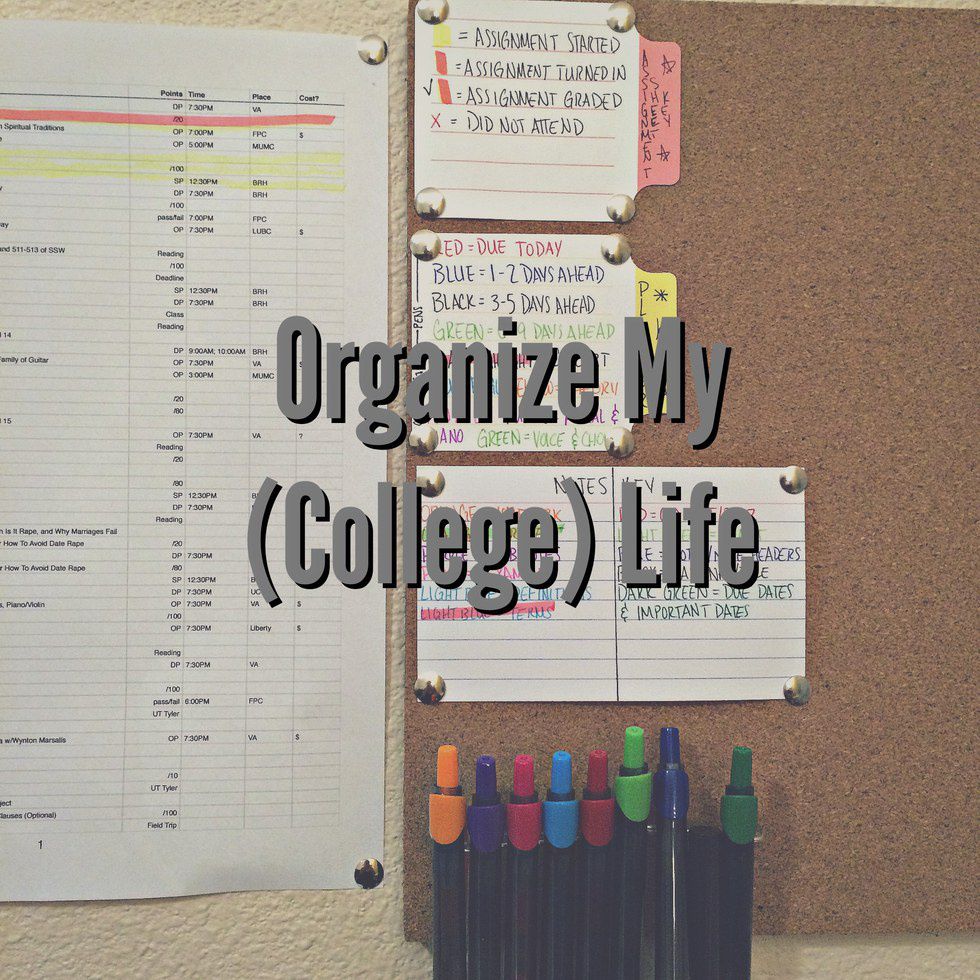As the beginning of the semester approaches, everyone is going through the bittersweet motions of going back to campus and getting back into the groove of classes, events, and their social lives. Although syllabus week is always a pretty easy-going and laid back week for the most part, that doesn’t mean that you should just sit back and let it fly by you. There are actually different things that anyone can do during this week to make the rest of the semester a little bit easier to manage.
By the end of syllabus week, you should definitely have gathered together all of your textbooks and school supplies for all of your classes. It’s perfectly understandable that many people wait until after they’ve had the class once to get these things so they know for sure what to buy, but before the second week starts back up you should definitely have everything set and ready to go. Be prepared for the semester with everything you think you’re going to need, including pens, pencils, highlighters, notebooks, and even binders if that’s your thing.
Have a physical copy of your syllabus, whether that means your professor handing you a copy of it or printing it out on the computer. Trust me, it’s worth using your print quota if you’re going to have an actual copy of it that you can look at, write on, and have with the rest of the things for that specific class. Be that student who has their syllabus on them when their professor is asking a specific question about it, or when students around you aren’t sure when anything is due. Plus, you’ll be on top of all of your due dates for the semester having all of those with you.
Get to know your classmates. No need to make a new best friend or make plans to go out with them all of the time, but who knows what kind of connection you can make with someone by just initiating a small conversation about class work with them, especially if you’re a freshman. It’s best in all of your classes to get to know at least one or two people that just in case something happens and you miss a class, you can get the notes, and vice versa. It’s also good to form friendships to the point where you can have study groups, and if you have a question then you have someone to ask besides your busy professor.
Speaking of, definitely get a feel for your professor and what kind of a professor they’re going to be for the semester. Figure out their office hours just in case something comes up where you have to see them, and try your best to figure out whether they’re a professor that’s going to be lenient or very strict. Especially if you have an illness or something going on in your personal life, depending on the professor, you might want to let them know about it. Plus, if you’re looking to get into graduate school or looking for good references, professors are great for writing recommendation letters if you are able to form a good relationship with them.






 StableDiffusion
StableDiffusion StableDiffusion
StableDiffusion StableDiffusion
StableDiffusion Photo by
Photo by  Photo by
Photo by  Photo by
Photo by 
 Photo by
Photo by  Photo by
Photo by  Photo by
Photo by  Photo by
Photo by  Photo by
Photo by 











